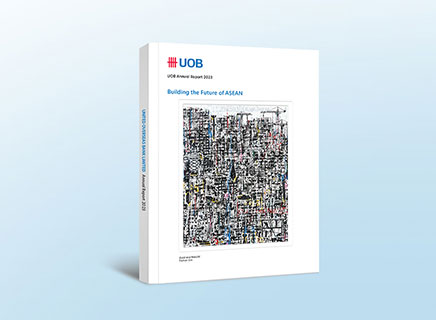Responsible Tax Management
Introduction
United Overseas Bank Limited ("UOB") is committed to strong corporate governance values and practices, including in its approach to taxation. We are committed to complying with applicable tax laws and regulations across the countries and territories in which we operate.
This statement complies with the requirements under the United Kingdom’s Finance Act 2016, paragraph 19(2).
Approach to Tax Risk Management and Governance
The Group Chief Financial Officer is responsible for oversight of tax responsibilities, with support from the Head of Group Tax.
UOB takes a low tolerance approach towards tax risk. Tax risk is managed through the Tax Risk Management and Governance Framework which is based on the following principles:
- Undertake transactions which are grounded in commercial realities;
- Consistently consider tax implications before implementing our business plans;
- File our tax returns accurately and in a timely manner, and fulfil our tax obligations appropriately;
- Employ experienced and qualified in-house tax professionals; and
- Seek professional advice from third party advisors and consult with tax authorities on transactions with significant tax uncertainty.
Approach to Base Erosion and Profit Shifting
Base Erosion and Profit Shifting (BEPS) refers to tax planning strategies that exploit gaps and mismatches in tax rules to artificially shift profits to low or no-tax locations. Singapore is part of the BEPS Project, led by the Organisation for Economic Co-operation and Development (OECD), to tackle BEPS issues across countries and jurisdictions in a coordinated and comprehensive manner.
UOB supports the BEPS principle that profits should be taxed where substantive economic activities generating the profits are performed and where value is created. UOB has adopted the internationally-agreed arm's length principle for the determination of prices for transactions between related parties.
Approach to Tax Planning
To ensure that UOB remains compliant with tax laws and regulations, we consistently consider the potential tax implications before implementing business plans and also consult with third party advisors to supplement and confirm our understanding, as necessary.
Relationship with Tax Authorities
UOB aims to build constructive relationships with tax authorities in the jurisdictions in which we operate. We achieve this by:
- Being open, transparent and cooperative in our dealings with the relevant tax authorities;
- Complying with legal obligations, including compliance, reporting and payment responsibilities;
- Abiding by guidelines or recommendations issued by tax authorities, which are intended to supplement legislation;
- Responding to tax queries in a timely manner and being forthcoming with information when requested; and
- For material and contentious tax issues, we may approach tax authorities for a private ruling or, less formally, as part of the early engagement review process.
Read about UOB’s Approach to Tax for UK



